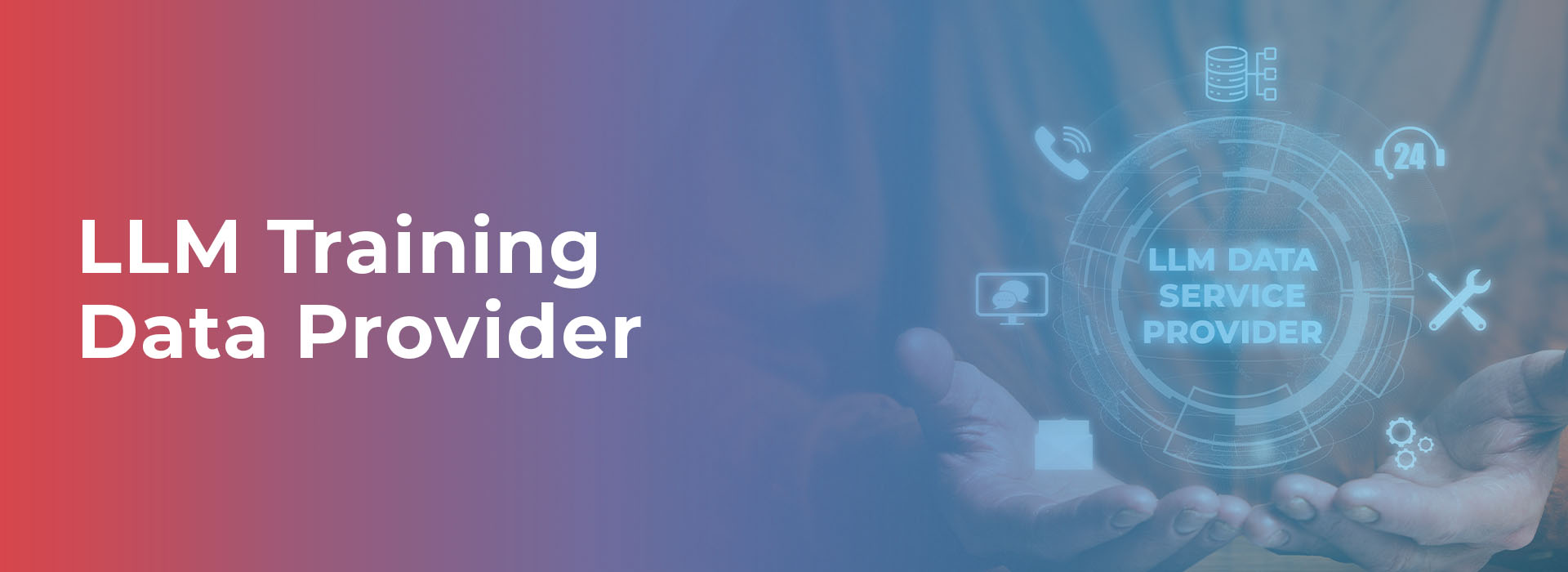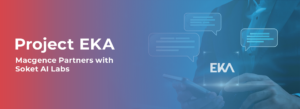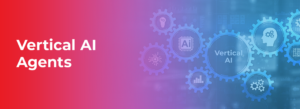How to Choose the Right LLM Training Data Provider
Machine Learning Engineers, Data Scientists, and Data Analysts understand a simple truth—quality training data is the backbone of creating highly capable large language models (LLMs). Without it, even the most sophisticated algorithms falter. However, sourcing, managing, and structuring training data can be a daunting task, particularly as datasets grow larger and more complex. Fortunately, trusted LLM training data providers, like Macgence, are stepping in to bridge this gap.
This guide will explore the role of high-quality training data, the importance of LLM training data providers, and how to identify the perfect provider for your project. Along the way, you’ll also learn some best practices and gain insights into future AI and machine learning trends.
Understanding LLM Training Data
What is LLM Training Data?
LLM training data refers to extensive datasets used to train large language models. These datasets aim to provide the foundation for an AI’s knowledge, enabling it to process, understand, and generate human-like text.
There are three primary types of training data commonly used:
- Labeled Data: This is data tagged with specific annotations, like sentiment analysis labels or named entities. It requires human intervention and is critical for supervised machine learning tasks.
- Unlabeled Data: Raw datasets without human-provided annotations. They are typically used in unsupervised learning to identify patterns within the data itself.
- Semi-Supervised Data: A balanced mix of labeled and unlabeled data, effective for cases where obtaining fully labeled data is too costly or redundant.
Why High-Quality Training Data is Crucial
Training data directly impacts the performance of your machine learning model. Poor-quality datasets lead to inaccurate predictions, biases, and even model failures. Clean, diverse, and representative data, on the other hand, ensures your model is equipped to understand and replicate complex nuances in real-world scenarios.
Common Challenges with Training Data
- Sourcing Relevant Data: Finding data that adequately reflects your use case can be time-consuming and resource-intensive.
- Bias: Datasets skewed toward certain demographics, views, or contexts can result in AI models that replicate or even amplify these biases.
- Scaling: Managing data volume increases proportional to model complexity.
- Labeling: Personnel-intensive tasks like consistent annotation require significant effort and expertise.
- Privacy and Security: Ensuring compliance with data protection regulations, such as GDPR, can complicate data handling.
How LLM Training Data Providers Can Help
The Role of Providers like Macgence
LLM training data providers specialize in sourcing, curating, and labeling the vast data sets essential for machine learning models. Providers like Macgence ensure that the data is of the highest quality, adheres to ethical guidelines, and is optimized to support your specific use cases.
Key Services Offered by Reliable Providers
- Data Sourcing: Access to diverse datasets tailored to your domain or project requirements.
- Annotation and Labeling: Skilled annotators create labeled data for accurate training.
- Data Enrichment: Enhancing data quality while eliminating redundant information.
- Ethical Practices: Compliance with privacy laws and elimination of biases in datasets.
Benefits of Outsourcing LLM Training Data Needs
- Expertise—With specialized experts, providers eliminate the guesswork when preparing datasets.
- Scalability—Providers can handle the demands of growing datasets as models expand.
- Cost-Effectiveness—Save resources otherwise spent assembling in-house teams.
- Enhanced Accuracy—Validated and clean datasets reduce errors during training.
Successful case studies, like Macgence’s work with conversational AI solutions, prove how well-prepared, curated datasets lead to breakthroughs in industries ranging from e-commerce to healthcare.
Best Practices for Choosing an LLM Training Data Provider
Key Evaluation Criteria
- Data Quality
Look for providers that ensure clean, diverse, and annotated data validated for your use cases. Macgence, for instance, is renowned for its rigorous quality checks.
- Scalability and Flexibility
The provider should scale with your business as your dataset requirements grow. They must also accommodate various languages, domains, or specialized data needs.
- Security and Compliance
Assess whether providers have robust data handling protocols in place to ensure compliance with data protection laws like GDPR or CCPA.
- Industry Experience
Choose providers familiar with your industry to reduce onboarding time and ensure alignment with project goals.
- Responsiveness
Communication with the provider should be consistent and transparent. A responsive provider will adapt to changes in project scope and deadlines.
Tips for Negotiating Agreements
- Prioritize transparency in costs. Ensure deliverables, timelines, and pricing structures are clearly outlined.
- Discuss ownership of datasets. Verify whether your project retains full access to modified datasets.
- Request sample datasets to evaluate data quality and relevance to your project.
Future Trends in LLM Training Data
Emerging Technologies in Data Collection and Labeling
- AI-Assisted Labeling
Using AI for pre-labeling datasets reduces manual labor while enhancing speed and accuracy.
- Synthetic Data Generation
Where traditional datasets fall short, synthetic data complements datasets with programmatically generated examples.
- Federated Learning
Instead of sharing raw datasets, this collaborative technique enables learning models without centralizing sensitive data.
Predictions for LLM Training Data
- Domain-Specific Models
Specialized datasets will become the norm for verticals like legal, healthcare, and finance.
- Inclusivity in Training Data
Ethical data use, diversity, and inclusivity will take center stage, shaping impartial LLMs that represent broader user bases.
- Edge AI Models
Training data optimized for on-device learning will gain traction as AI applications move closer to users.
How High-Quality Training Data Accelerates Innovation
Choosing the right LLM training data determines the success of your machine learning projects. By leveraging the expertise of providers like Macgence, you gain access to clean, reliable, and ethically sourced data capable of powering the next-generation AI applications.
If you’re ready to transform your models with high-quality training data, partner with professionals. With Macgence, efficiency, security, and accuracy are guaranteed at every step of the process. Learn more by exploring Macgence’s offerings today.
FAQs
Ans: – An LLM training data provider sources, prepares, labels, and curates datasets specifically tailored for training large language models.
Ans: – Look for data quality, scalability, domain expertise, ethical compliance, and security measures. Providers like Macgence offer free sample datasets to showcase their capabilities.
Ans: – Industries like healthcare, retail, SaaS, and legal benefit greatly due to their reliance on domain-specific models for accurate predictions.
You Might Like
February 28, 2025
Project EKA – Driving the Future of AI in India
Spread the loveArtificial Intelligence (AI) has long been heralded as the driving force behind global technological revolutions. But what happens when AI isn’t tailored to the needs of its diverse users? Project EKA is answering that question in India. This groundbreaking initiative aims to redefine the AI landscape, bridging the gap between India’s cultural, linguistic, […]
March 7, 2025
What is Data Annotation? And How Can It Help Build Better AI?
Spread the loveIntroduction In the world of digitalised artificial intelligence (AI) and machine learning (ML), data is the core base of innovation. However, raw data alone is not sufficient to train accurate AI models. That’s why data annotation comes forward to resolve this. It is a fundamental process that helps machines to understand and interpret […]
March 6, 2025
Vertical AI Agents: Redefining Business Efficiency and Innovation
Spread the loveThe pace of industry activity is being altered by the evolution of AI technology. Its most recent advancement represents yet another level in Vertical AI systems. This is a cross discipline form of AI strategy that aims to improve automation in decision making and task optimization by heuristically solving all encompassing problems within […]
March 5, 2025
Use of Insurance Data Annotation Services for AI/ML Models
Spread the loveThe integration of artificial intelligence (AI) and machine learning (ML) is rapidly transforming the insurance industry. In order to build reliable AI/ML models, however, thorough data annotation is necessary. Insurance data annotation is a key step in enabling automated systems to read complex insurance documents, identify fraud, and optimize claim processing. If you […]


 Previous Blog
Previous Blog







